This week sees the launch of leading local health charity Northern Ireland Chest Heart & Stroke’s (NICHS) new stroke awareness campaign. Over the past ten years there has been a 23% increase here in the number of people registered with their GP as having had a stroke or Transient Ischemic Attack (TIA)¹, often referred to as a mini stroke. This increase is hugely worrying for the charity and through this campaign it is working to raise awareness of stroke symptoms and remind the public to act FAST if they spot any symptom of stroke:
F - Face – is it drooping on one side?
A - Arms – is their arm weakness? Can they be raised?
S - Speech - is it slurred?
T - Time to get to hospital as soon as possible.
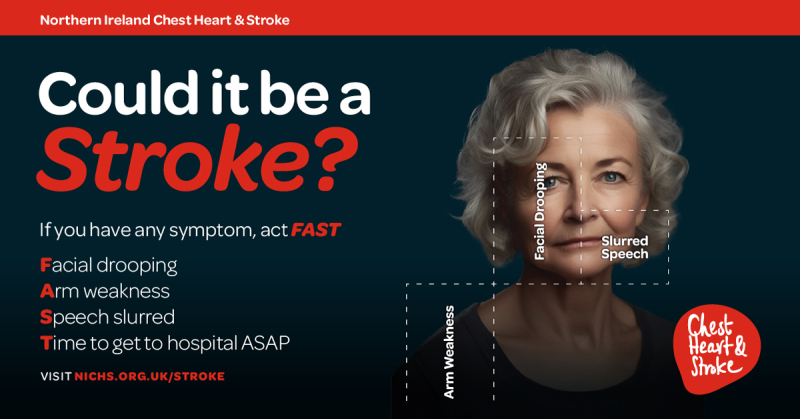
The charity’s campaign has garnered the support of three local sporting legends, all of whom have experienced the potentially devastating impact of stroke. The stories of Kathryn Dane, Chris Henry and Andy Waterworth show how stroke can affect anyone at any age, no matter their level of fitness and state of health. They also highlight how important it is to recovery to seek medical attention as soon as possible if any symptom of stroke starts.
Kathryn Dane
Former Ireland and Ulster rugby star Kathryn Dane had a stroke at the astonishingly young age of 26. Kathryn was at the pinnacle of health and fitness and was just a few weeks into her new life as a professional rugby player when she suddenly became ill during a training session.
Kathryn recalls; “I felt a massive pain behind my right eye, in the back of my head. My coach, Ed Slattery, noticed straight away that my face had dropped. I wasn’t aware of that but didn’t feel well. The stroke took its hold incredibly quickly- immediately I had left-sided weakness. Ed got the team doctor, and they knew straight away that I had had a stroke of some description."
“I was fortunate in a way I had my stroke where I did because the gym is so close to the hospital and within fifteen minutes, I was in Connolly Hospital in Dublin, where it was discovered I had suffered a brain haemorrhage, and I received immediate treatment. With these things, time is everything and if I’d had my stroke somewhere else and Ed hadn’t recognised the symptoms, I would have had a totally different outcome.”
Kathryn continues; “That’s why I am supporting Northern Ireland Chest Heart & Stroke’s campaign, to make people aware of the FAST acronym and highlight that if they experience, or see in others, any symptom of stroke, to get to hospital as soon as they possibly can. The quicker you get treatment, the better the outcome is likely to be.”
“Thankfully, I have recovered well. Eighteen months after my stroke I was back playing rugby for Ulster, and I was the first female Ulster player to be included in a Barbarians squad for a match in 2024. I completed my PhD at Trinity College Dublin last year and am now a Postdoctoral Associate at the University of Calgary in Canada. My stroke is a chapter in my life story that I’ve fought back from and have overcome.”
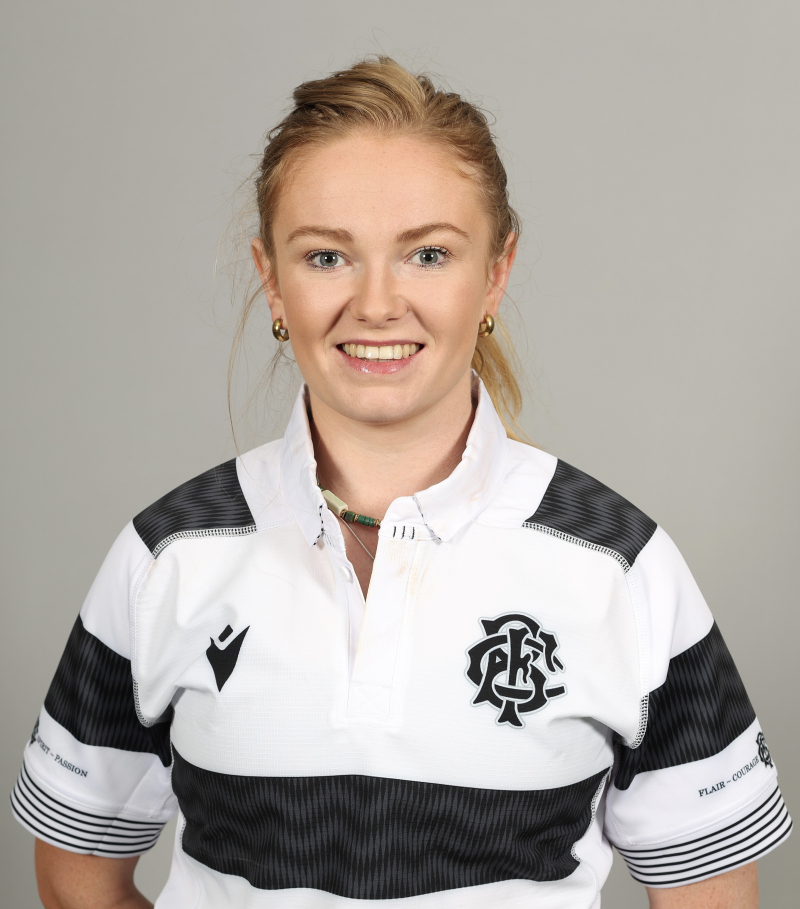
Chris Henry
At the youthful age of 30, Ulster and Ireland rugby legend Chris Henry never imagined that he would suffer from any major health problems. In November 2014 however Chris was left terrified when he suffered a Transient Ischemic Attack (TIA), also known as a mini-stroke, just hours before an international rugby game.
Chris explains: “I was in a hotel bathroom and tried to splash water on my face when my left arm suddenly fell down, the left side of my face drooped, and my speech was slurred. My father had a stroke, so I knew what the symptoms were, and I knew I needed urgent help.”
“Luckily, my team and roommate Rhys Ruddock realised this too and he went to get help. A doctor was at my side within three minutes, and I was transferred to hospital where it was discovered I had had a TIA which was due to an undiagnosed hole in my heart.”
“As a Northern Ireland Chest Heart & Stroke ambassador, I am proud to support the campaign. I know how important it is to get help as soon as possible if you are having a stroke, of any kind. It is vital people are aware of the FAST acronym and know that if they see any symptom of stroke, to get to hospital as soon as possible. Time is of the essence.”
“Thankfully, I recovered well. I had an operation to close the hole. I returned to playing professional rugby for Ulster and was delighted to represent Ireland at the 2015 Rugby World Cup. Since hanging up my rugby boots, I went in a different direction and now work as an Orthopaedic Sales Manager. I also became an ambassador for NICHS and am delighted to be able to support the charity’s vital work through lending my support to campaigns such as this.”
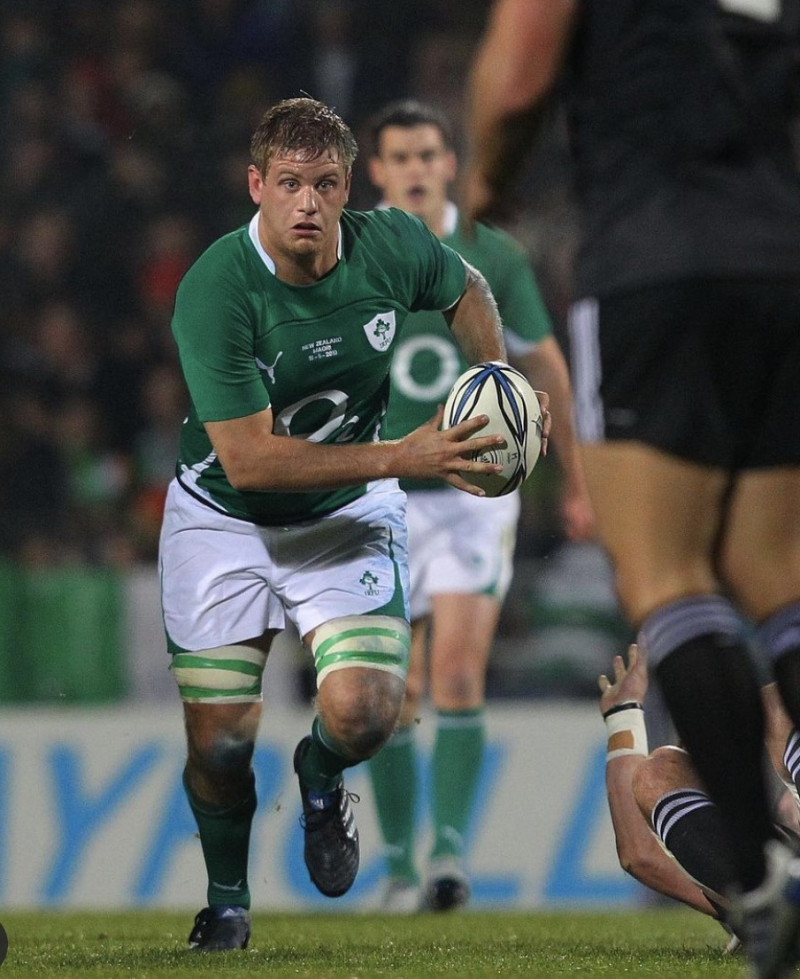
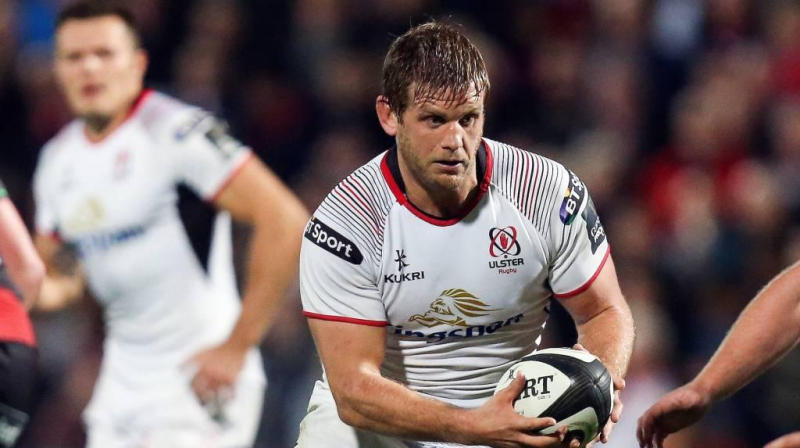
Andy Waterworth
Irish League legendary striker, and now Director of Elite Player Development at the Irish Football Association, Andy Waterworth had a stroke in April 2022. Unbelievably, this happened the day after Andy played the last professional football match of his career for Glenavon and celebrated his retirement from sport.
Aged 36, Andy was in peak physical health. As a successful footballer who played for Glentoran, Linfield and Glenavon, to name but a few, Andy was fit, stuck to an extremely healthy diet and had regular player health checks. He was the last person you would imagine having a stroke.
Andy says; “I was in shock. Never in a million years did I think that I would have a stroke. As an athlete, health and fitness is the number one priority and to be fit and well one minute and have a stroke the next was unbelievable.”
“I’m supporting Northern Ireland Chest Heart & Stroke’s campaign to raise awareness that a stroke can happen to anyone at any age. Although the symptoms of my stroke didn’t present themselves in the way of the FAST acronym, mine were visual disturbance and balance difficulties, it is so important for people to be aware of FAST and to get to hospital as soon as possible if they see any sign of stroke.”
“I would appeal to everyone, if you don’t feel right go and get yourself checked out as a matter of urgency. With strokes it is so important to get seen as soon as possible.”
“I feel lucky that I’ve recovered well. It was discovered I had a Patent Forman Ovale (PFO) which is a hole in the heart. This is what caused the stroke, and I had surgery to close the hole. Thankfully, I made a brilliant recovery. One week later I was back on the golf course, although I took it easy. Six weeks later I was back at work at the Irish Football Association.”
Andy concludes; “Having a stroke put things into perspective for me and now I’m happy and enjoy spending more time with my family, having holidays and continuing to work in a job that I love.”
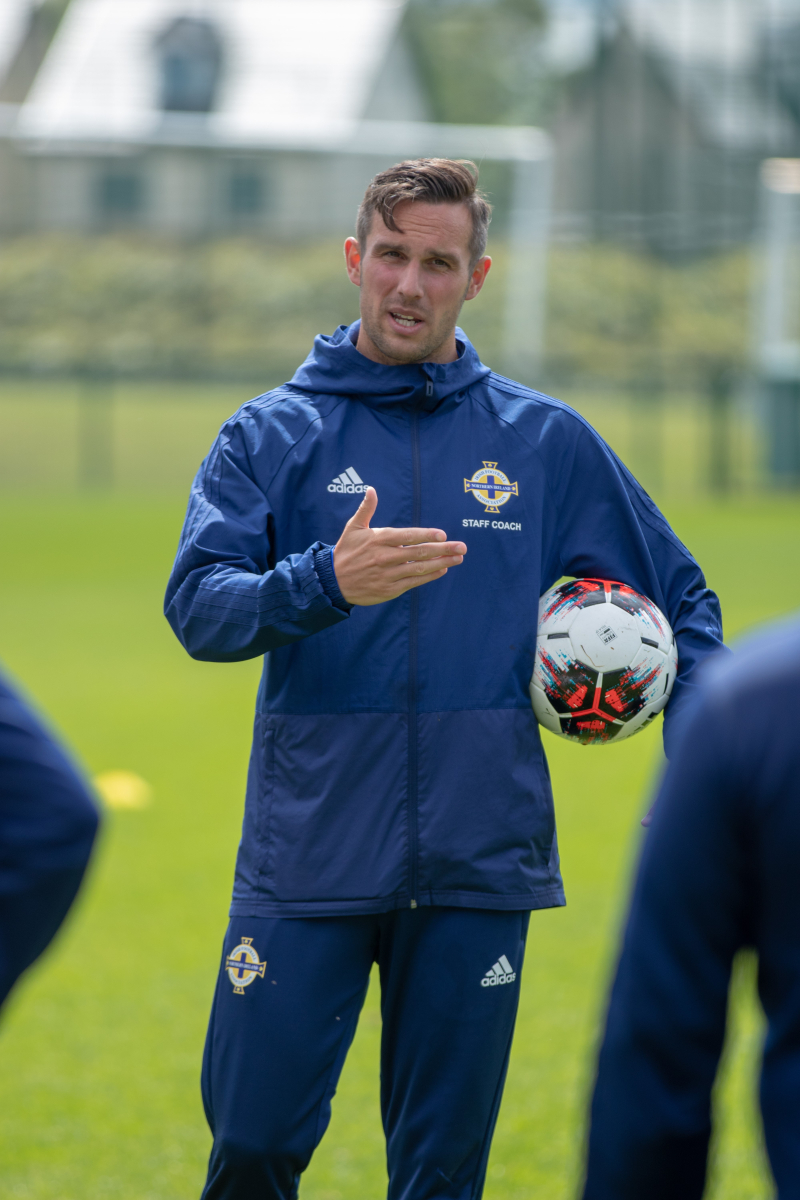
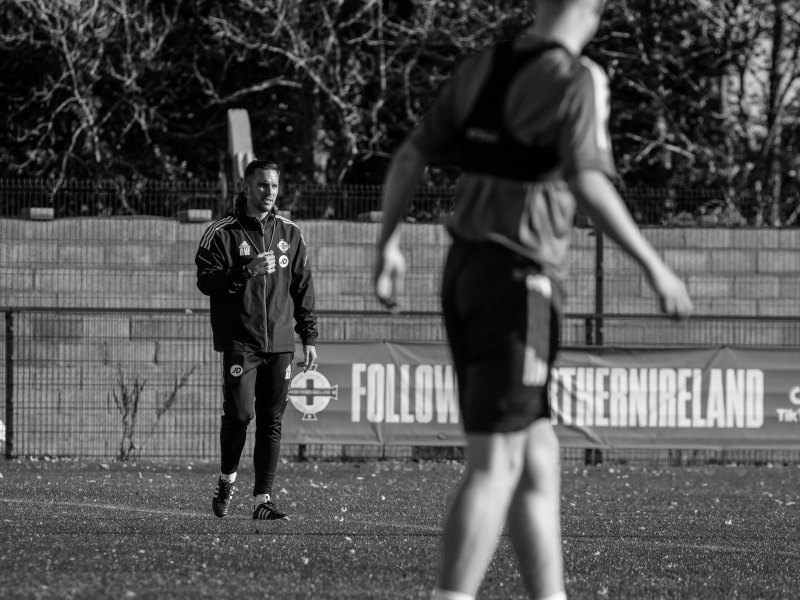
Ursula Ferguson, Director of Care Services at Northern Ireland Chest Heart & Stroke (NICHS), says; “We are extremely grateful to Kathryn, Chris and Andy for supporting our new stroke awareness campaign. Their stories show how vital it is that everyone is aware of the FAST acronym, can recognise the symptoms of stroke, and understands how critical it is to get to hospital as soon as possible if they spot any sign of stroke.”
“Over 42,000 people in Northern Ireland are registered with their GP for stroke or TIA and the number of people living with stroke here has increased over the past ten years¹. This is extremely concerning for NICHS as the prevalence of stroke-related disability and long-term care needs are in turn increasing.”
“This campaign is so important. It is estimated that up to 1.9 million brain cells can die every minute when someone has a stroke², which is why the sooner a potential stroke is recognised, and the faster medical help is sought, the better the chances of one, survival, and two, reducing the potential long-term effects of a stroke are. Knowing the FAST acronym and acting FAST at the first sign of stroke is vital.”
Dr Brian Gallen, Consultant Stroke Physician at the South West Acute Hospital in Enniskillen, and NICHS Governance Board member, comments; “This campaign is hugely important as a reminder to the public of the symptoms of stroke and the need to get to hospital as soon as possible if any symptom is experienced. The FAST acronym clearly communicates the main symptoms of stroke; Face – is it drooping on one side? Arms – is there arm weakness? Can the arms be raised? S - Speech - is it slurred?”
“There are however other symptoms to be aware of, and it is important these are not discounted, as Andy’s story shows. Other symptoms of stroke can include problems with balance and coordination, sudden loss of vision, numbness down one side of the body, communication problems in understanding speech, difficulty swallowing and sudden severe headache. If any of these symptoms are experienced, it is important to also seek medical attention as soon as possible.”
For more information, please visit nichs.org.uk/FAST
